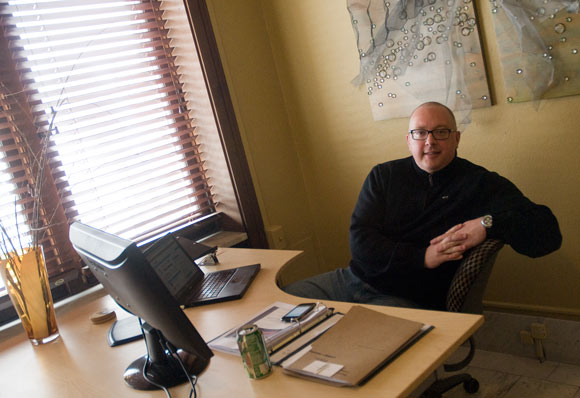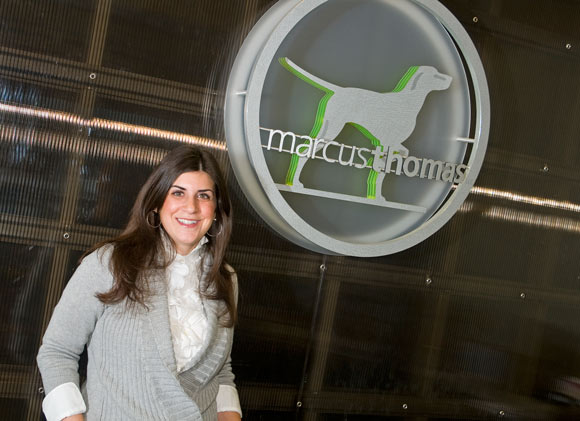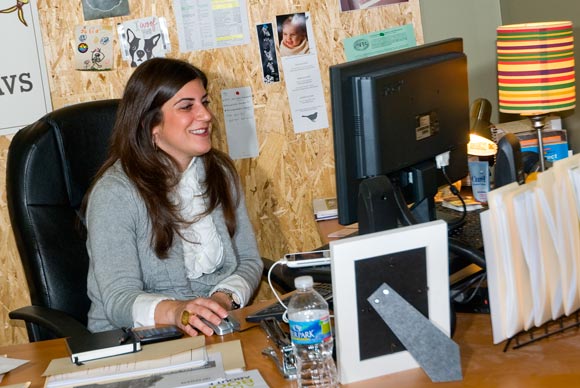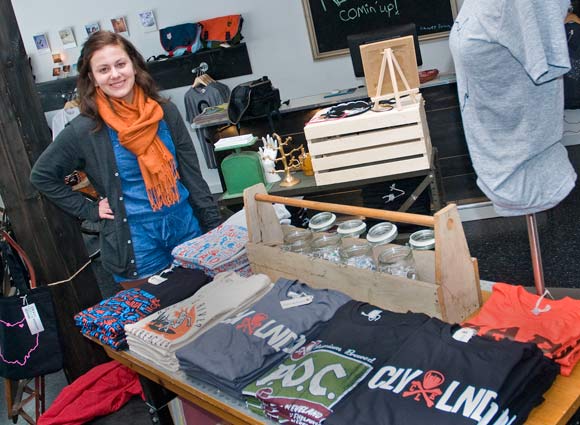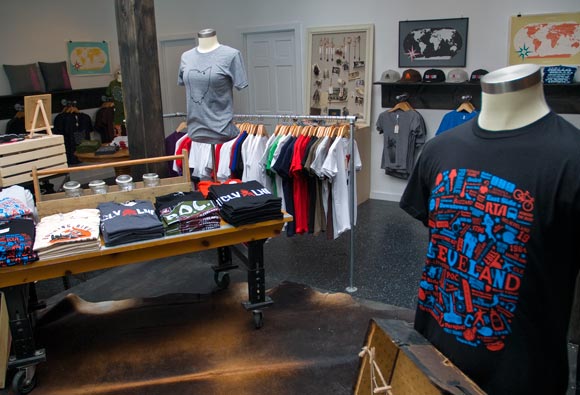the social network: savvy entrepreneurs tweet their way to a better bottom line
Michael DeAloia's latest entrepreneurial venture, Emerging Chefs, probably wouldn't have survived a few years ago much less thrived. The ever-moving dinner series introduces Cleveland foodies to rising culinary stars at pop-up events held in cool venues. But it's DeAloia's elegantly looping use of social media that makes the project a case study in new-economy entrepreneurship.
DeAloia, the former City of Cleveland "tech czar," uses email, Facebook and Twitter on either side of each event -- both to announce upcoming affairs and to post follow-up photos, videos and links to press and blogger coverage. Participating chefs also post the content on their restaurant websites, which links back to the Emerging Chefs site, forming a virtuous circle of publicity. All of the promotion serves to build anticipation for the next event.
"We're trying to build synergy," says DeAloia. "We just tweet and Facebook to no end to drive traffic."
And the tactic is working. When Emerging Chefs launched in September, DeAloia sent out 11,000 emails, which led to 42 ticket sales and one media mention. Contrast that to the third such event, which was half sold out before a single email was sent and generated six media stories.
"It is a weird formula," DeAloia admits, "but it works for us."
The reason diners are flocking to the Emerging Chefs events -- namely, to personally connect with chefs -- is also what makes social media work for the entrepreneurs behind the scene, explains Michelle Venorsky, VP at integrated marketing agency Marcus Thomas.
"Social media provides a great vehicle for [entrepreneurs] because they can start to have a one-on-one conversation with people," she says "They can provide a peek behind the curtain and have that first handshake with people."
Just make sure that handshake isn't a dead fish -- or an intimidating death grip. Marketing via social media will fail, warns Venorsky, if business owners neglect their accounts or, conversely, adopt the "bullhorn" approach, posting announcements but never engaging with fans and followers. Think of the social-media market as a big cocktail party, where both the introvert and the blowhard are ignored. And neither gets invited back.
"Once you lose people socially," Venorsky says, "it's very hard to get them back."
If there is one rule in the ostensibly carefree world of social media, it's that one size definitely does not fit all. To help spread the word, Cleveland t-shirt company CLE Clothing Co. borrows from the old newspaper chestnut of the society page. But rather than dispatching photographers to events, the company invites its 8,500-plus Facebook fans to submit photos of themselves in CLE gear. It's a simple and free way to drive shoppers both to the website and a new bricks-and mortar store, Native Cleveland, which carries its shirts.
Used properly, social media is a two-way -- not just one-way -- conversation.
Dim and Den Sum owner Chris Hodgson doesn't only use social media to let folks know where his gourmet food truck happens to be parked, he uses it to solicit feedback and generate buzz. A recent Facebook post that encouraged fans to submit possible names for his company's second rig generated 85 responses. Whether or not Hodgson selects the name "Miso Hungry," as one poster suggested, is irrelevant. He is keeping his customers thoroughly engaged during an otherwise quiet time of year.
"Companies usually take on the personality of the owner," notes Dominic Litten, an interactive marketing pro at Beachwood's Point to Point. The same often holds true when it comes to a company's social media feed, where personality helps establish and build the brand. But personality is not enough, says Litten, and in some cases is no help at all. More important are consistency and persistence.
Litten marvels at how former newspaper reporter Chris Seper used a consistent and persistent social media campaign to spread the word about MedCity News, his healthcare news company. Litten says it was Seper's social-media savvy that helped "make the content so much more valuable." So valuable, in fact, that since launching in Cleveland, MedCity News has spread to Minnesota's Twin Cities and North Carolina.
While humor is often the go-to method of choice online, there are situations where it has no place. David Keller's current and potential clients at Keller National rely on him to provide sound insurance advice -- humor would only confuse or offend those going through difficult times. So instead Keller posts links to industry-related news items.
Facebook has delivered four new clients thus far, Keller says. "It's the easiest way to target Generation Y."
If you're not using social media, says small-business consultant Jim Kukral, you're already behind. Kukral recalls a conversation with a healthcare executive who announced that his organization's videos would never appear on YouTube for fear of being associated with the frivolous and strange content that routinely shows up there. When Kukral conducted his own online search of the organization, "I found thousands of videos of people complaining about this place," he says.
"The truth us," Kukral warns, "people are having conversations about you whether you like it or not."

